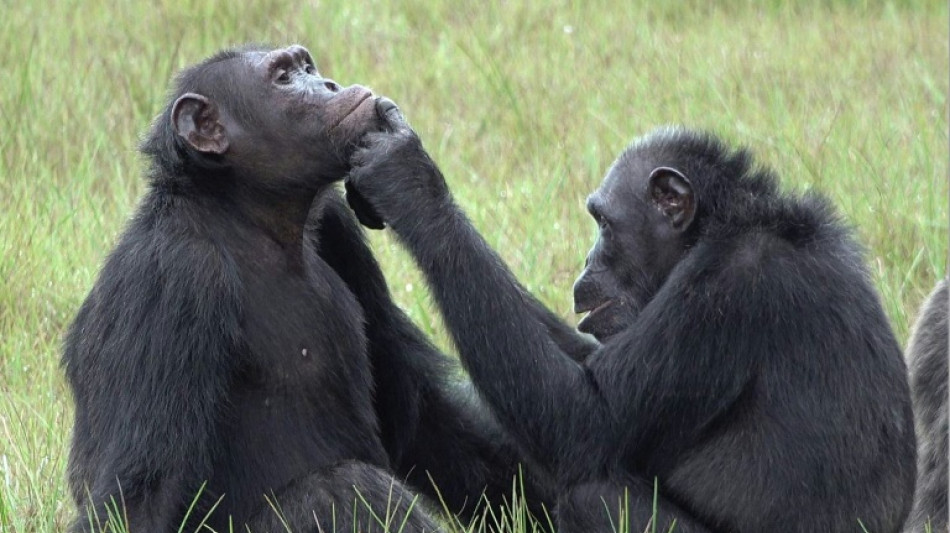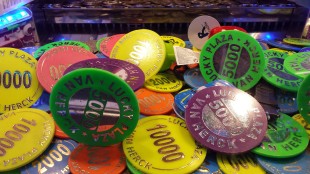
-
 Von Allmen wins men's Olympic downhill gold, first of Games
Von Allmen wins men's Olympic downhill gold, first of Games
-
First medals up for grabs at Winter Olympics

-
 Afghanistan captain Khan harbours dream of playing in Kabul
Afghanistan captain Khan harbours dream of playing in Kabul
-
Lindsey Vonn completes second Winter Olympics downhill training run

-
 Freeski star Gu survives major scare in Olympic slopestyle
Freeski star Gu survives major scare in Olympic slopestyle
-
Iran FM looks to more nuclear talks, but warns US

-
 Hetmyer's six-hitting steers West Indies to 182-5 against Scotland
Hetmyer's six-hitting steers West Indies to 182-5 against Scotland
-
After boos for Vance, IOC says it hopes for 'fair play'

-
 Thousands gather as Pakistan buries victims of mosque suicide attack
Thousands gather as Pakistan buries victims of mosque suicide attack
-
Lindsey Vonn completes second downhill training session

-
 US pressing Ukraine and Russia to end war by June, Zelensky says
US pressing Ukraine and Russia to end war by June, Zelensky says
-
Faheem blitz sees Pakistan avoid Netherlands shock at T20 World Cup

-
 Takaichi talks tough on immigration on eve of vote
Takaichi talks tough on immigration on eve of vote
-
England's Salt passed fit for T20 World Cup opener

-
 Spain, Portugal brace for fresh storm after flood deaths
Spain, Portugal brace for fresh storm after flood deaths
-
Pakistan bowl out Netherlands for 147 in T20 World Cup opener

-
 Pushed to margins, women vanish from Bangladesh's political arena
Pushed to margins, women vanish from Bangladesh's political arena
-
Crypto firm accidentally sends $40 bn in bitcoin to users

-
 Pistons end Knicks' NBA winning streak, Celtics edge Heat
Pistons end Knicks' NBA winning streak, Celtics edge Heat
-
Funerals for victims of suicide blast at Islamabad mosque that killed at least 31

-
 A tale of two villages: Cambodians lament Thailand's border gains
A tale of two villages: Cambodians lament Thailand's border gains
-
Police identify suspect in disappearance of Australian boy

-
 Cuba adopts urgent measures to address energy crisis: minister
Cuba adopts urgent measures to address energy crisis: minister
-
Not-so-American football: the Super Bowl's overseas stars

-
 Trump says US talks with Iran 'very good,' more negotiations expected
Trump says US talks with Iran 'very good,' more negotiations expected
-
Trump administration re-approves twice-banned pesticide

-
 Hisatsune leads Matsuyama at Phoenix Open as Scheffler makes cut
Hisatsune leads Matsuyama at Phoenix Open as Scheffler makes cut
-
Beyond the QBs: 5 Super Bowl players to watch

-
 Grass v artificial turf: Super Bowl players speak out
Grass v artificial turf: Super Bowl players speak out
-
Police warn Sydney protesters ahead of Israeli president's visit

-
 Simi Khanna Launches Simi Beauty SK: A Natural Skincare Line Blending Luxury, Wellness, and Purpose
Simi Khanna Launches Simi Beauty SK: A Natural Skincare Line Blending Luxury, Wellness, and Purpose
-
Best Gold IRA Companies February 2026 Announced (Top Gold-backed IRA Companies Revealed)

-
 Bolivia wants closer US ties, without alienating China: minister
Bolivia wants closer US ties, without alienating China: minister
-
Ex-MLB outfielder Puig guilty in federal sports betting case

-
 Milan-Cortina Winter Olympics open with dazzling ceremony
Milan-Cortina Winter Olympics open with dazzling ceremony
-
China overturns death sentence for Canadian in drug case

-
 Trump reinstates commercial fishing in protected Atlantic waters
Trump reinstates commercial fishing in protected Atlantic waters
-
Man Utd can't rush manager choice: Carrick

-
 Leeds boost survival bid with win over relegation rivals Forest
Leeds boost survival bid with win over relegation rivals Forest
-
Stars, Clydesdales and an AI beef jostle for Super Bowl ad glory

-
 Dow surges above 50,000 for first time as US stocks regain mojo
Dow surges above 50,000 for first time as US stocks regain mojo
-
Freeski star Gu says injuries hit confidence as she targets Olympic treble

-
 UK police search properties in Mandelson probe
UK police search properties in Mandelson probe
-
Bompastor extends contract as Chelsea Women's boss despite slump

-
 Milan-Cortina Winter Olympics open with glittering ceremony
Milan-Cortina Winter Olympics open with glittering ceremony
-
A French yoga teacher's 'hell' in a Venezuelan jail

-
 England's Underhill taking nothing for granted against Wales
England's Underhill taking nothing for granted against Wales
-
Fans cheer for absent Ronaldo as Saudi row deepens

-
 Violence-ridden Haiti in limbo as transitional council wraps up
Violence-ridden Haiti in limbo as transitional council wraps up
-
Hundreds protest in Milan ahead of Winter Olympics


Treating wounds with insects: the strange habits of Gabon chimps
How to treat a wound?
For humans, the first instinct would be to disinfect it and then cover it with a bandage.
But chimpanzees have invented a more creative method: catching insects and applying them directly to the open wound.
Scientists observed this behavior in chimpanzees in the West African nation of Gabon, noticing that the apes not only use insects to treat their own wounds, but also those of their peers.
The research, published Monday in the journal Current Biology, marks an important contribution to ongoing scientific debate about the ability of chimpanzees -- and of animals in general -- to selflessly help others.
"When you're going to school and you read in your biology books about the amazing things that animals can do," Simone Pika, a biologist at the University of Osnabruck in Germany and a co-author of the study, told AFP. "I think it could really be something like that that will end up in those books."
The project began in 2019, when an adult female chimpanzee named Suzee was observed inspecting a wound on the foot of her adolescent son.
Suzee then suddenly caught an insect out of the air, put it in her mouth, apparently squeezed it, and then applied it to her son's wound.
After extracting the insect from the wound, she applied it two more times.
The scene unfolded in Loango National Park on Gabon's Atlantic coast, where researchers are studying a group of 45 central chimpanzees, an endangered species.
Over the following 15 months, scientists saw chimpanzees administer the same treatment on themselves at least 19 times.
And on two other occasions they observed injured chimpanzees being treated in the same way by one or several fellow apes.
The wounds, sometimes several centimeters wide, can come from conflicts between members of same or an opposing group.
Far from protesting the treatment, the bruised chimpanzees were happy to be tended to.
"It takes lot of trust to put an insect in an open wound," said Pika. "They seem to understand that if you do this to me with this insect, then my wound gets better. It's amazing."
- Soothing properties? -
Researchers have not been able to identify what bug was used on the wounds, but they believe it to be a flying insect given the chimpanzees' rapid movement to catch it.
Pika says the insect could contain anti-inflammatory substances that have a soothing effect.
Insects are known to have various medical properties and researches will need to conduct more work to detect and study the insect in question.
Birds, bears, elephants and other animals have already been observed self-medicating, for example by eating plants.
But what is unique about chimpanzees is that they will treat not just themselves, but also help others.
Some scientists, however, still doubt the ability of animal species to exhibit prosocial behaviors, such as selflessly caring for others, Pika said.
But here the chimpanzees have nothing to gain, she stressed. So why do they do it?
In humans, prosocial behavior is generally linked to empathy.
Could the same feeling be at play in chimpanzees, Pika wondered.
"It is a hypothesis that we must study," she said.
P.Stevenson--AMWN


